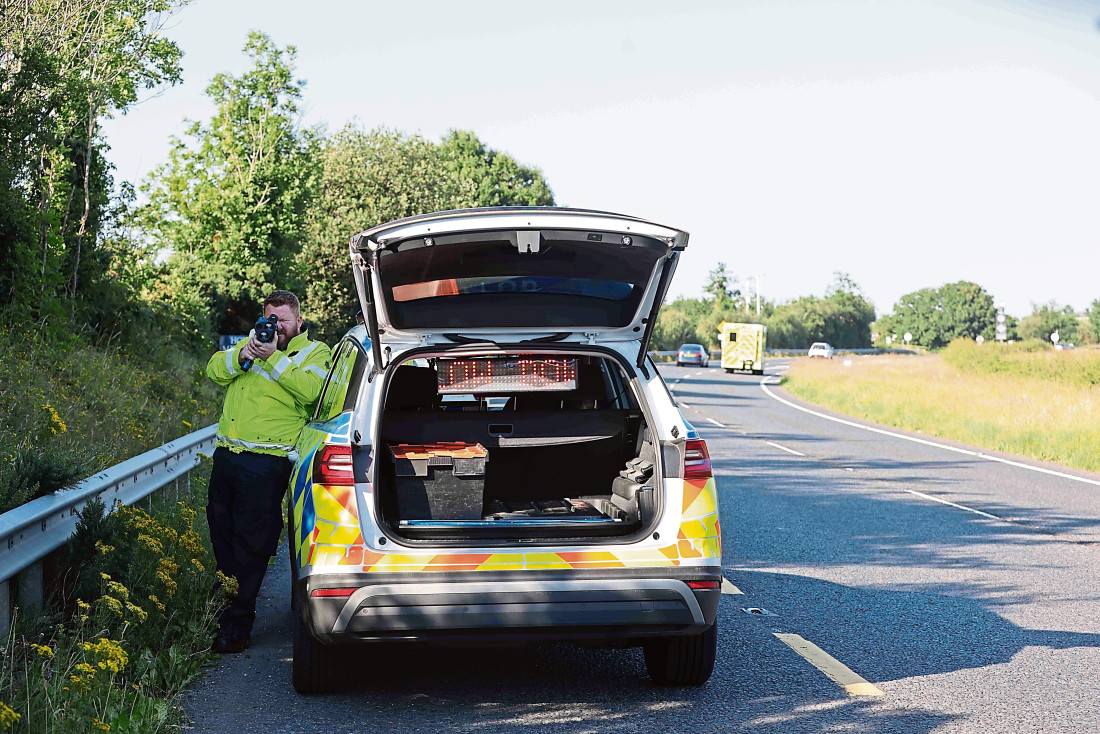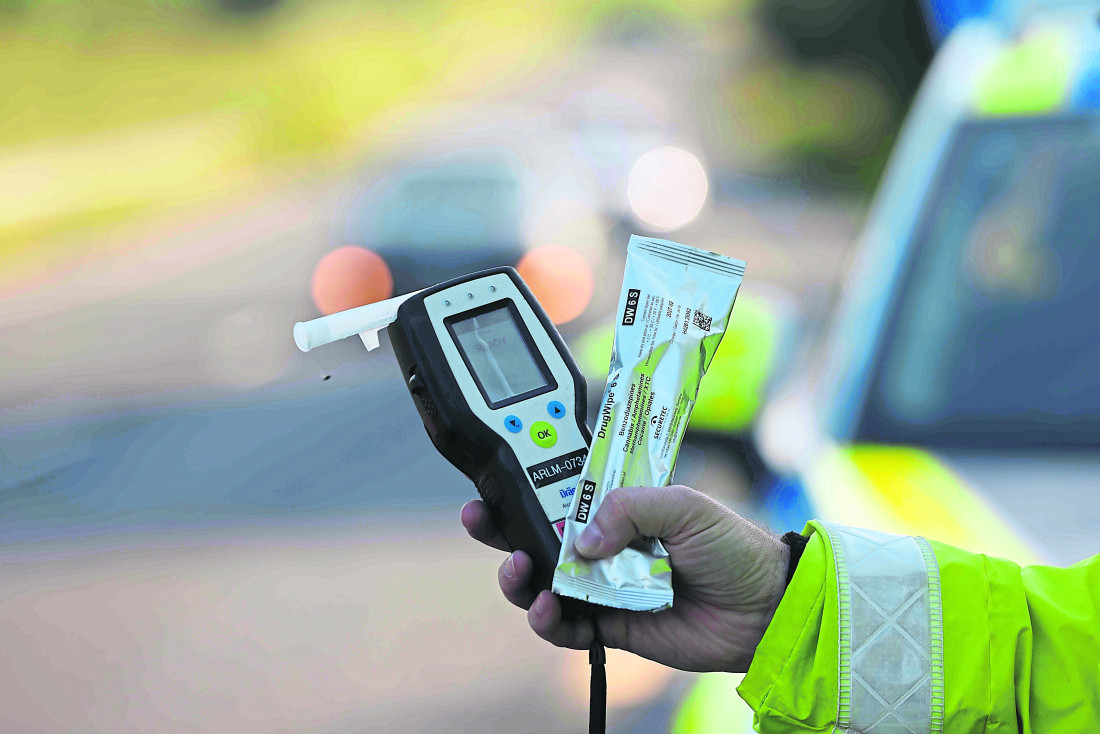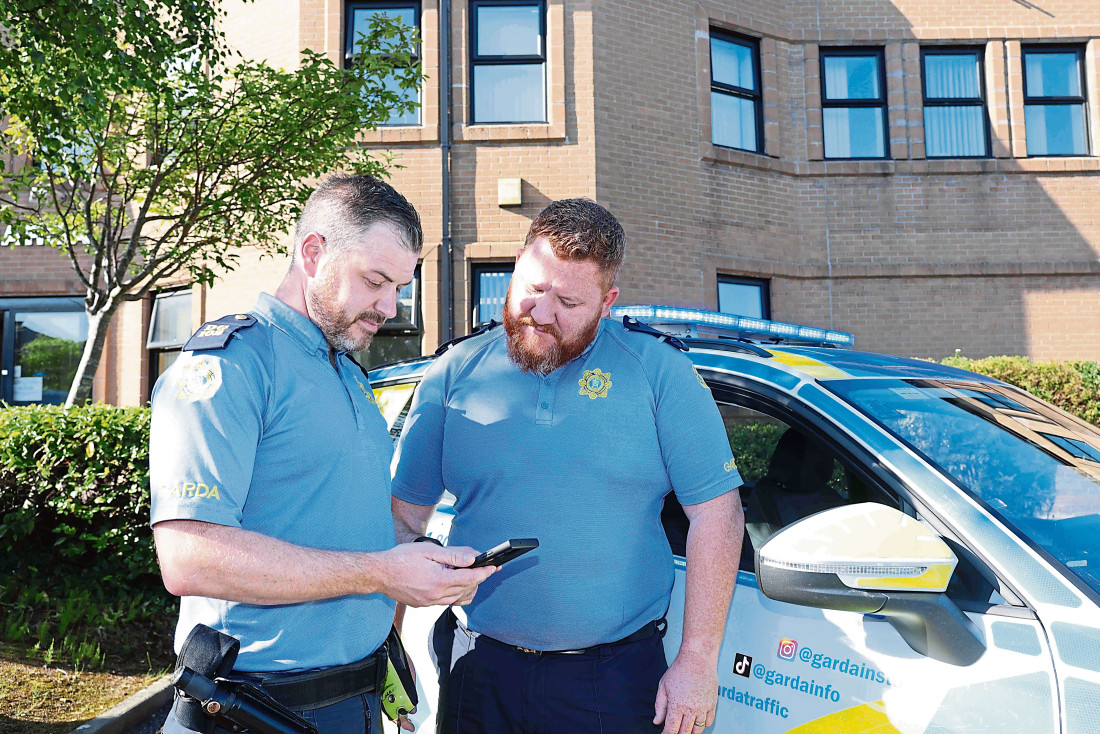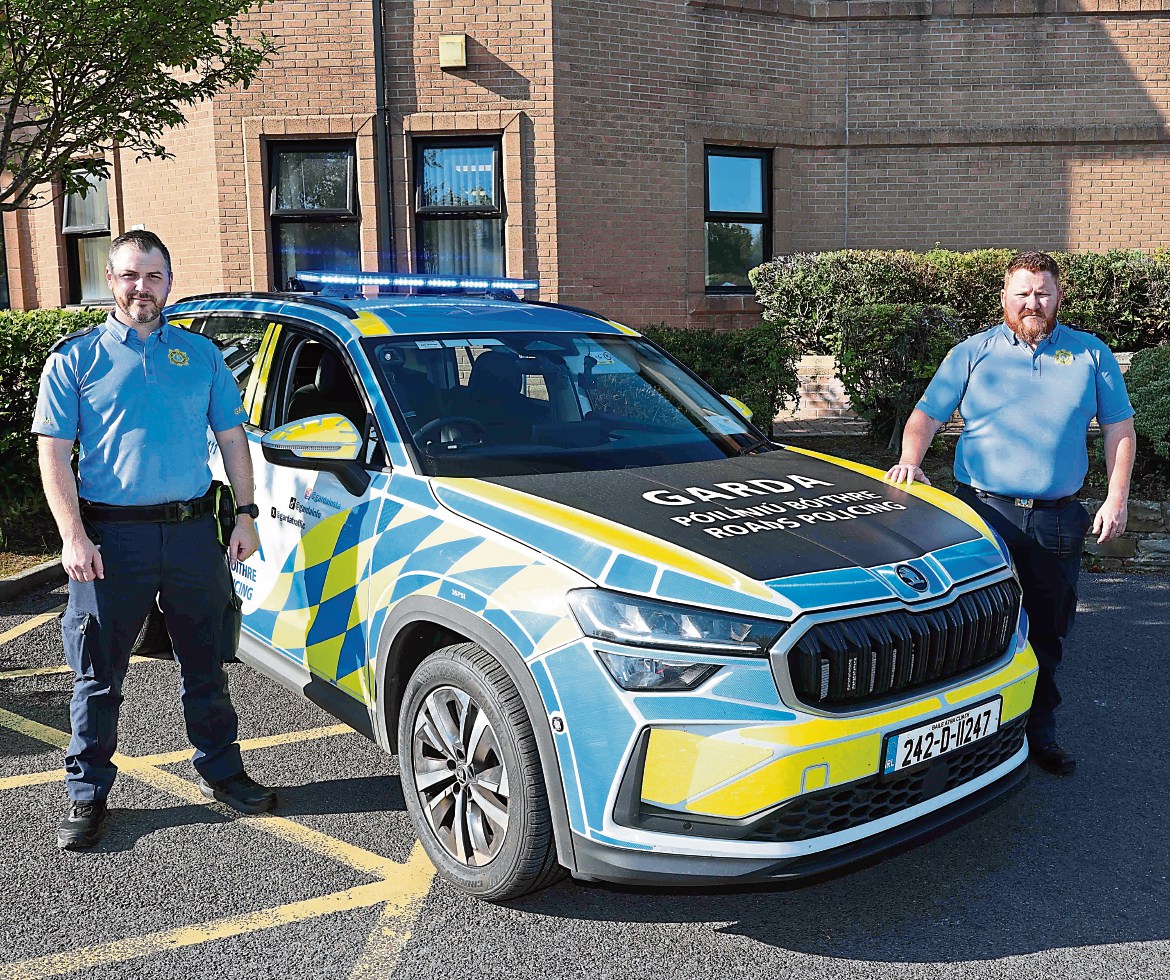By Louise Doyle
THE increasing challenges our frontline services are under is undeniable, but on Saturday night I saw this firsthand when I was given the opportunity to accompany Letterkenny gardaí on the beat.
Setting out at 6pm in an unmarked car with Garda Stephen Campbell and Garda Stephen Carroll, of the Roads Policing Unit, they tell me that every shift is made up of different factors, including the weather which was apt given Saturday was the hottest day of the year.
With a combined experience of 11 years in roads policing, the duo bring a wealth of experience and life skills to the role which complements the in-car technology they use to detect motoring offences.
They showed me how Automatic Number Plate Recognition (ANPR) technology alerts them to uninsured or untaxed drivers, but I got the feeling that their own gut instincts play just as important a part.
“Drug driving has seen a huge rise, it has taken over from drink driving. There’s been a massive rise in cocaine use among drivers,” said Garda Campbell.
“If a person tests positive for drug driving they are brought back to the station where they are processed by a member in charge. A nurse or doctor designated with road traffic is contacted to come to the station to take a blood sample from the arrested person. It then goes off to the Medical Bureau Road Safety who analyse it. We get results back, and depending on levels, the person is prosecuted.
“It is frustrating. It is a long, drawn out process in court because it can be a while before you get to a hearing date,” said Garda Campbell.
With Garda Campbell behind the wheel and Garda Carroll in the front passenger seat, we patrolled the town and outer limits. I asked them if they believe the road safety message is being driven home to drivers.
“I don’t know what will make the message hit home. We’re out trying to enforce it the best we can but our numbers our down. We’re being stretched in the roads policing capacity but we’re also brought in to regular policing to fill gaps there as well. It is because of many factors.”
Asked if a large part of the problem was to do with garda recruitment, Garda Campbell said: “There’s a lot of factors putting people off applying. It’s (policing) not as respected as it used to be.”
Garda Carroll added: “It was a job for life when we joined.”
Social media is another source of frustration for the Roads Policing Unit.
“There’s an app called Waze, and we find that when we are conducting a speed checkpoint people put an icon on the app letting drivers know where we are. We used to be able to set up checkpoints and be there for a while. Now our location is all over social media due to this app and drivers take different routes.”
One standout speed detected by Garda Carroll was 200kph on Garda Road.
“We’ve heard all the excuses of the day, like the person was going to the doctors or needed the toilet.
“Speeding is an overall issue. It’s not just young people, it’s men and women of all ages, from all walks of life and from all professions.”
Being a border county, the Roads Policing Unit has a strong link with the Police Service of Northern Ireland (PSNI).
“We’d notify them if there was a vehicle that failed to stop that was heading for the border in the hope that they might have a unit in the area that they are crossing over. Likewise, they would always notify us,” said Garda Carroll.

Garda Stephen Campbell conducts a speed checkpoint.
ATTITUDE
Keen to know how motorists respond to the Roads Policing Unit when they are stopped, I asked them of their past experience.
“How you deal with people is how you get it back, for the most part. If someone is driving 140kph, they know they are doing that. If you do your job professionally, you get it back from them,” said Garda Campbell.
It wasn’t too long before I saw this for myself as shortly into our patrol we were in pursuit of a speeding driver travelling at 125kph on the dual carriageway. The male driver was stopped at Ballyraine, where Garda Carroll spoke to him. Having shown him the speed reading, Garda Carroll issued the driver with a €160 fine and three penalty points.
A short time later, Garda Carroll spotted two children seated in the front of a Mercedes car sharing a seatbelt. The driver was stopped, issued with an FCPN and alternative travel arrangements were made for the children.
At 8.45pm,a Volkswagen driver is detected holding his phone while travelling on the dual carriageway. When pulled over, he told Garda Carroll that he was using his phone to check Google Maps. He is subsequently drug swipe tested, and this reveals a positive for cannabis.
With the driver arrested, I get into the front of the car while Garda Carroll sat in the back as the young man was conveyed to Letterkenny Garda Station. He asked what will happen in the station and is informed that a nurse will be called and will take a blood sample, which immediately made the young man apprehensive as he told of his fear of needles. But by the time we arrived at Letterkenny Garda Station, Garda Carroll and Garda Campbell had put the young man at ease.

A breathalyser and drug testing wipe used by the Roads Policing Unit.
Garda Carroll later stopped a driver close to the Clanree Hotel when he observed that his tinted windows could be beyond the legal limit of use. He carried out a test on the driver’s front windscreen and two front side windows, which revealed the tints were in excess of legal use. The driver removed the tints, and told Garda Carroll: “You’ve been very fair to me.”
DOMESTIC INCIDENT
Shortly before 11pm, I joined Garda Eamonn McBride and Garda Daithi Lee on Public Order Patrol. We make our way in the garda van to a domestic violence incident reported by neighbours who heard “shouting and arguing”. When we arrived a short time later, we found that the parties involved had already de-escalated.
UNPREDICTABLE
Garda Lee and Garda McBride told me how incidents of domestic related callouts have “skyrocketed” since the Covid-19 pandemic, which they put down to alcohol intake and an after effect of the pandemic.
“When you’re dealing with that type of situation, things are always unpredictable,” said Garda Lee.
Garda Lee and Garda McBride told me they too have seen a rise in drug use.
“Once upon a time you would arrest someone for a public order offence and at the station a search of their person would reveal their phone and wallet, but now more times than not we are finding cannabis and cocaine.”
As we chat, Garda Lee shares that attending incidents of mental health is massive for gardaí not just locally but across the country. A short time later, we are dispatched to Letterkenny University Hospital after a call was received that an intoxicated woman was kicking doors at the hospital and scaring people in the emergency department. When we arrive a few minutes later, the woman had moved on.
Minutes later, gardaí were dispatched to a call to check on the welfare of a young girl whom neighbours believed was at home with adults who were drinking and possibly taking drugs. They called to the house, and spoke with its occupants and the young girl. Having carried out their enquiries, garda were satisfied that there was no danger posed as there was a sober adult in the house. However, occupants of the house were advised that gardaí will make a referral to Tusla.
Just after 1am, a call is received about a young man in a distressed state. Having attended the scene, gardaí make the decision to detain him under their care to the garda station, where a doctor is called. Having assessed the young man, the doctor concluded that he should be admitted to the Psychiatric Unit. I travelled with gardaí as they conveyed the young man to the Psychiatric Unit, where he was handed over to the care of staff there.
The situation, from the call out to its conclusion, was handled with exceptional care and professionalism by Garda Lee and Garda McBride.
“Most people see us as there to help. We act as a bridge for people,” said Garda Lee.

Garda Stephen Carroll and Garda Stephen Campbell look over their mobile phone technology.
INSIGHT
While my time with the Public Order Unit was busy with callouts, Main Street was quiet with no disorder or arrests made there.
I left at 4am with an enduring insight of just how much gardaí do to keep people safe – and that they too are only human and carry a lot of what they see with them.
My thanks to Garda Stephen Carroll, Garda Stephen Campbell, Garda Daithi Lee and Garda Eamonn McBride.










